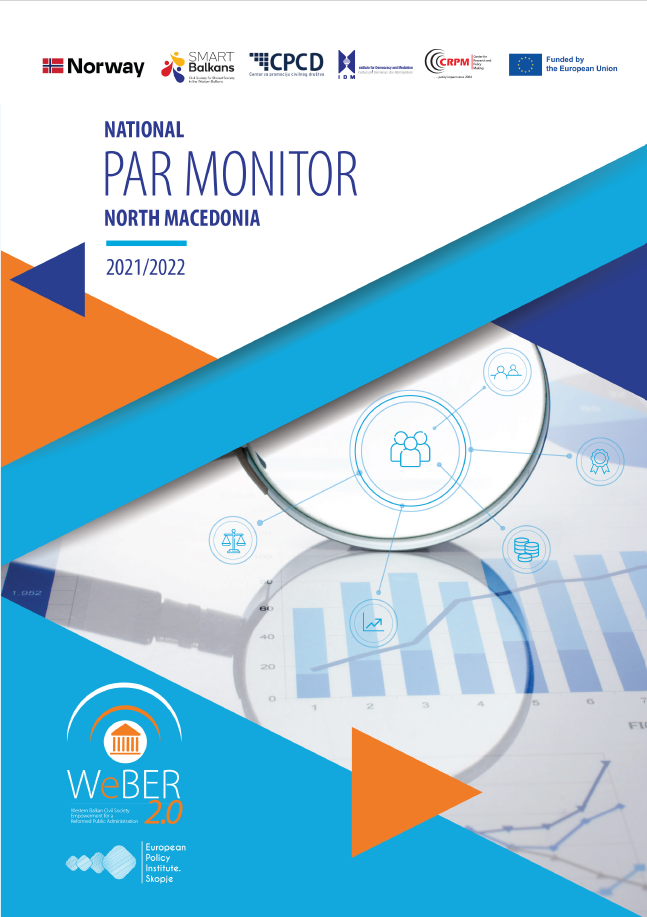North Macedonia PAR Monitor 2021/2022
The North Macedonia PAR Monitor 2021/2022 is the result of monitoring work performed in 2021/2022 by the European Policy Institute – EPI, and it represents a report of key findings from across the Western Balkans in the six areas of PAR defined by the Principles of Public Administration (SIGMA principles). As the third systematic PAR monitoring done in North Macedonia by EPI, this report offers comparisons with the baseline PAR Monitor findings of the 2017/2018 and 2019/2020 monitoring cycles.
PAR Monitor reports are based on a comprehensive methodological framework designed by the WeBER research team that combines quantitative and qualitative sources of evidence. With the SIGMA principles as the building blocks of monitoring work, PAR Monitor reports are complementary to similar work by SIGMA/OECD and the European Commission, differing in that they offer citizen and civil society perspectives on these principles. Together with this comparative regional report, the PAR Monitor package consists of six national reports, each including findings on a total of 23 compound indicators to monitor a selection of SIGMA Principles.

The North Macedonia PAR Monitor 2021/2022 is available for download here: English and Macedonian
